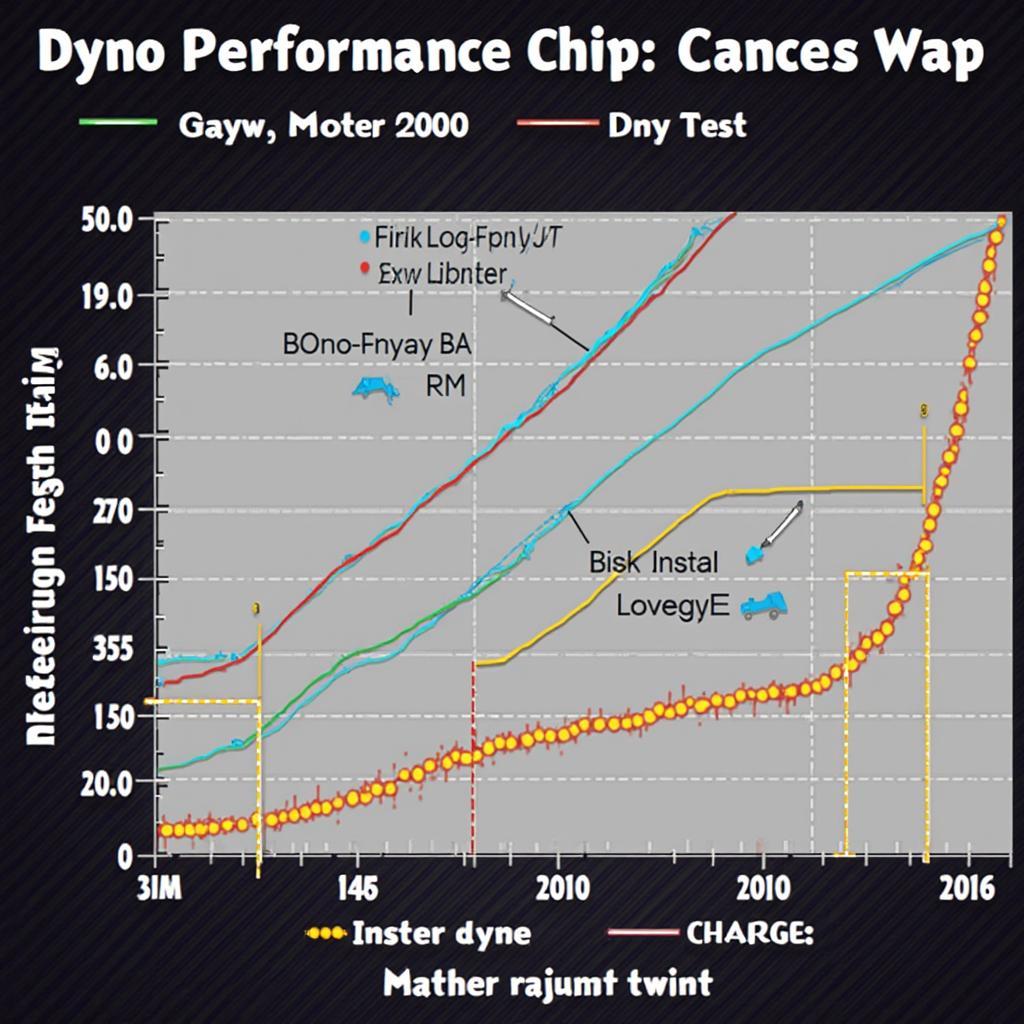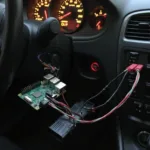OBD2 plug and drive OBDII performance chip tuning is a popular topic among car enthusiasts seeking a quick and easy way to boost their vehicle’s performance. But does this technology truly deliver on its promises, or is it just another automotive myth? This article delves into the intricacies of OBD2 performance chips, separating fact from fiction and providing a comprehensive understanding of their capabilities and limitations.
Understanding OBD2 Plug and Drive Performance Chips
OBD2 plug and drive performance chips are marketed as devices that can significantly enhance a vehicle’s horsepower, torque, and fuel economy by simply plugging into the OBD2 port. They claim to modify the engine control unit (ECU) parameters to optimize performance. However, the reality is often more nuanced than these claims suggest. These chips primarily alter fuel maps and other engine parameters within the ECU’s pre-programmed limits. While some performance gains might be noticeable, they are often marginal and depend heavily on the vehicle’s make, model, and engine type. For some drivers, the perceived improvement might be attributed to the placebo effect.
One common misconception is that these chips unlock hidden potential within the ECU. While the ECU does have adaptive learning capabilities, these are primarily designed for maintaining optimal performance within factory specifications, not for dramatic performance increases. True performance tuning often requires custom remapping of the ECU, which involves specialized software and expertise.
Does OBD2 Chip Tuning Really Work?
The effectiveness of OBD2 plug and drive performance chip tuning is a subject of ongoing debate. While some users report slight improvements in horsepower and torque, others experience no noticeable difference. The reality is that these chips are not a magic bullet for performance enhancement.
Furthermore, claims of significant fuel economy improvements are often exaggerated. While adjusting fuel maps might lead to marginal gains, these are often offset by driving habits and other factors. A more reliable approach to improving fuel economy involves adopting eco-driving techniques and ensuring proper vehicle maintenance. Check out our article on obd2 economy chip tuning box for more information.
Risks and Considerations of OBD2 Performance Chips
While the potential benefits of OBD2 plug and drive performance chips are often overstated, there are also potential risks to consider. Installing a poorly designed or incompatible chip could negatively impact engine performance, fuel economy, and even damage the ECU.
Potential Negative Impacts of OBD2 Performance Chips
- Voiding the Warranty: Using aftermarket performance chips can void your vehicle’s manufacturer warranty.
- ECU Damage: Incompatible chips could corrupt the ECU’s software or cause other malfunctions.
- Reduced Engine Life: Pushing the engine beyond its designed parameters can lead to increased wear and tear.
- Increased Emissions: Modifying fuel maps can sometimes result in higher emissions.
Alternatives to OBD2 Plug and Drive Tuning
For those seeking significant performance gains, professional ECU remapping offers a more comprehensive and reliable solution. This process involves custom tuning the ECU’s software to optimize various engine parameters, resulting in substantial improvements in horsepower, torque, and potentially fuel efficiency. While more expensive than OBD2 plug and drive chips, professional tuning provides tailored performance enhancements and minimizes the risk of damage to the ECU. You might also consider using an elm327 usb interface obdii obd2 diagnostic for detailed diagnostics and some level of customization.
Conclusion
OBD2 plug and drive OBDII performance chip tuning offers a tempting shortcut to enhanced performance, but the reality often falls short of the marketing hype. While some modest gains might be achievable, the potential risks and limitations outweigh the benefits for most drivers. For those seeking substantial performance improvements, professional ECU remapping remains the preferred method.
FAQs
- What is an OBD2 port? The OBD2 port is a standardized diagnostic interface found in most modern vehicles.
- Can OBD2 chips damage my car? A poorly designed or incompatible chip can potentially damage the ECU.
- Do OBD2 chips improve fuel economy? Claims of significant fuel economy improvements are often exaggerated.
- Is OBD2 chip tuning legal? The legality of OBD2 chip tuning varies depending on local regulations.
- What is ECU remapping? ECU remapping involves custom tuning the ECU’s software for optimized performance.
- Are there any safe alternatives to OBD2 performance chips? Professional ECU remapping is a safer and more effective alternative.
- How can I improve my car’s performance safely? Consult with a qualified mechanic or tuning specialist for safe performance upgrades.
Need help with your car’s diagnostics or performance tuning? Contact us via WhatsApp: +1(641)206-8880 or Email: [email protected]. Our 24/7 customer support team is ready to assist you.


